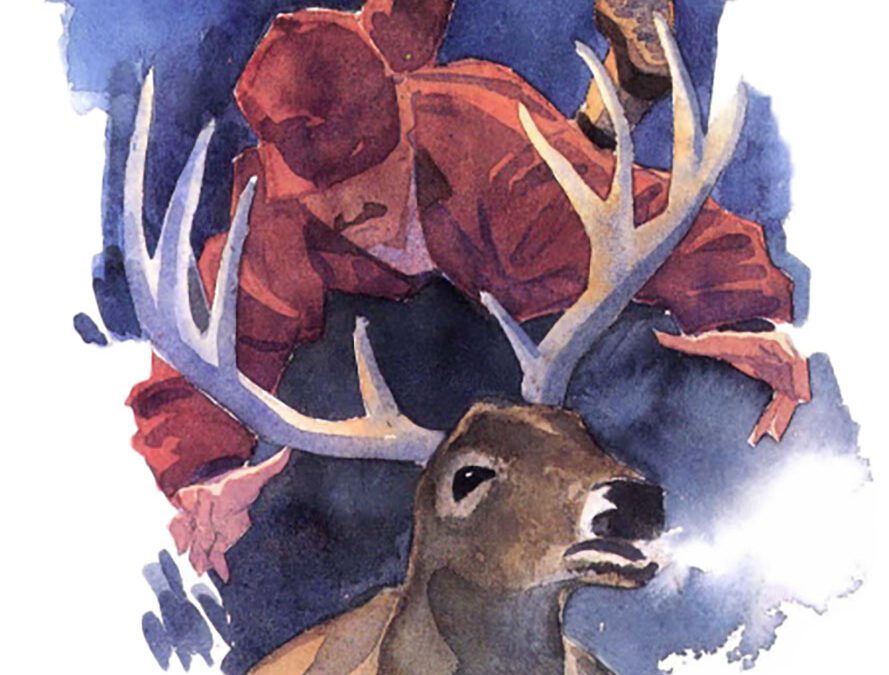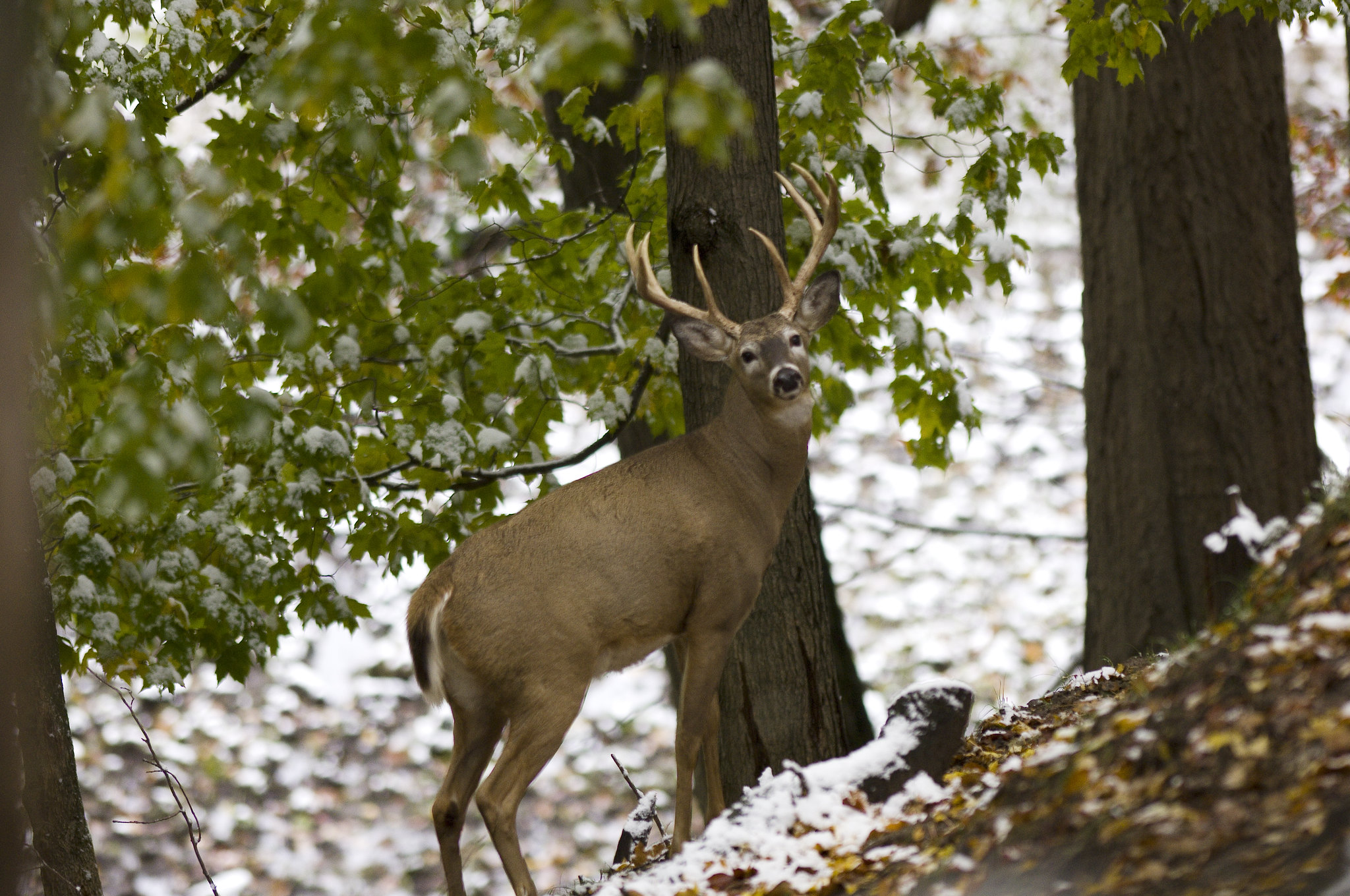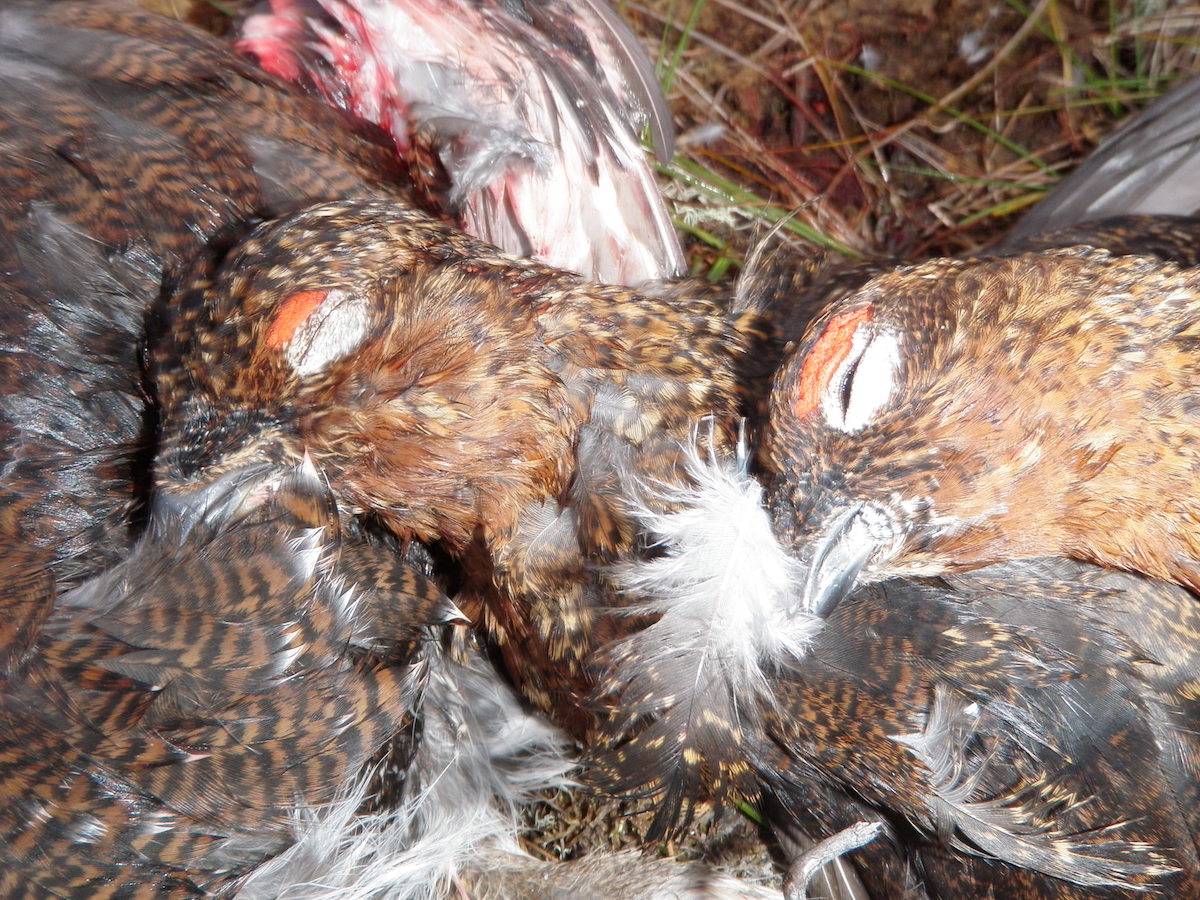We were learning the world. It is that learning I speak of as hunting.
In the house I rent hangs a photo of me taken as a teenager. I’m lying next to my dog in some tall reeds by a river. For a long time I wondered what made me frame that picture and hang it. Tika and I were young, that was part of it, but there was more.
It was a woman, passing through, that finally remarked to me, “You and the dog look the same.”
She wasn’t kidding. Though of different species, we wear similar expressions. We were happy that day, working on Tika’s retrieves and loving it, and excited with what we’d discovered of things so far and with the prospect of finding out more. We were learning the world. It is that learning I speak of as hunting.
One carries few things through life. When I was a kid and had neither money nor much freedom, I used to fear doing something stupid when I grew up, like getting married, having kids and buying a house before I’d had a chance to hunt the places I’d dreamed of. I shouldn’t have worried. I’ll be 40 soon, am unmarried, have no children and own no home. And for different reasons than when I was a boy, I still hunt and want to spend more days in the field each year than most people I know.
It started when I was eight, tagging along with my father on deer drives through the woods and fields on our farm in western New Jersey I was fascinated. Grown men of stern demeanor suddenly hid behind trees like children. My father knew some tough sons-of-bitches. I decided there must be something mighty compelling in those woods for them to carry on like that. Eventually, and like so many kids, I started to bug my father for my own gun, but he said I wasn’t old enough.
I would have had it made, but we sold the farm when I was eleven and moved near the ocean. We fished now and then, and I kept after the old man for a shotgun. He said to wait. He knew his health was going before anyone else and thought it a little late in the game to struggle through the woods with a kid, even if it’s your own son. He was as right about that as he was everything else. He lasted two more years.
When your father’s dead you tie his Remington Model 1100 across the handlebars of a bike and peddle some miles in the dark to the only land not posted. Or you beg someone to drive you. Or you walk, mostly through fields and alongside-roads so the police won’t stop you and ask about four thousand questions. I wouldn’t wish those years before my driver’s license on anyone.
When I finally had a car, I discovered waterfowling in the coastal area where we lived. After the car and hip boots, I didn’t have any money left for decoys, so I pass-shot low flyers. I hunted ducks practically all the time after school and on weekends. There was, simply, no place else I’d rather have been. I liked the late season best, with snow on the ground and the marshes frozen. I stalked bunches or pairs or singles huddled in little pools down out of the wind. I rarely saw the ducks until they flew, most of the time before I was in range, so I didn’t get many But it was action and wonderful to watch the green-headed mallard drakes in the winter sunlight.
When the O-ring went on the Remington, I convinced my mother it was wiser to lend me ninety dollars for a neat old A.H. Fox double than to waste 40 cents replacing the O-ring. I loved that Fox double along time.
One January morning, I carried it through the cattails in the dark to a flat stream that led to a river. At first light two black ducks whistled up the stream, one after the other. I missed the first and killed the other with the second barrel. He made a big splash and floated up on the opposite bank. I remember literally jumping for joy. I stripped off my coat, laid the shotgun across it and headed for the stream, which should be the end of the story. It was nothing more than dumb youth that made me go back for the gun. I was all of seventeen and certain more ducks would fly over. I loaded the gun and started to wade. That the water was freezing and the current fast never crossed my mind.
Twenty feet in, the mud got sticky, but I yanked loose and pushed across. About halfway, things got deep and the bottom softer. A few steps later the bottom fell away and down I sank, my hip boots filling up unbelievably fast. I tried to turn around, but sank over my head. I bounced and strained to get my mouth up to breathe. I was going into shock from the water temperature and realized I would drown if I didn’t let go of the shotgun and probably even if I did. I released my grip on the gun and flailed in that cold gray water like a maniac, but still couldn’t get my head above the surface. Finally I crouched down deep and crawled the bottom for perhaps three feet, then sprung up like a frog and half my head saw daylight again. When I came out soaking on the other side I pulled off my boots, found the duck and went off walking barefoot in a direction I’d never been.
I was as lucky that day as I was stupid. There was a farmhouse a half-mile from the stream and I knocked on the door with frozen clothes, still holding the duck. A woman of 40opened the door and gasped. I told her I was sorry to bother her, but could she drive me to my car?
I went back that afternoon for my jacket, but there was no way to get that great old double. It’s still there, I bet, monument to youth, property of the bottom.
Next came school, the service and the search for a career. It took several years to stumble over a vocation that suited me and several more to get established in it. That period churned along slowly, and I had neither time nor money to hunt. Sometime in my early thirties I decided I was successful enough to afford groceries through the winter, so I took a week off to hunt deer in Mississippi.
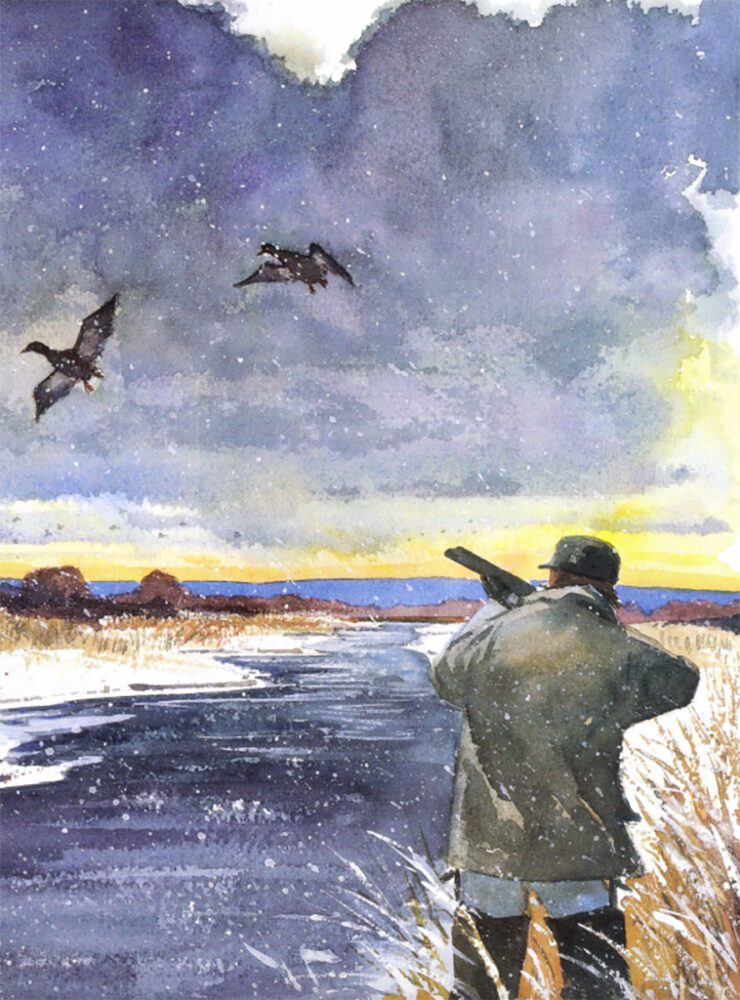 On the first night I stood in a platform between three trees in the woods above a pea patch. As the light started to go a doe trotted up and then another and then in the twilight and dark between the trees, something walked up behind them wearing a phosphorescent crown. It was a 10-point, and I fumbled the borrowed .300 Savage up, mesmerized by that glowing rack. The Savage went off four times — I don’t even remember working the lever — and when the smoke cleared, the buck was looking at me. He turned and shuffled off in the direction of the does.
On the first night I stood in a platform between three trees in the woods above a pea patch. As the light started to go a doe trotted up and then another and then in the twilight and dark between the trees, something walked up behind them wearing a phosphorescent crown. It was a 10-point, and I fumbled the borrowed .300 Savage up, mesmerized by that glowing rack. The Savage went off four times — I don’t even remember working the lever — and when the smoke cleared, the buck was looking at me. He turned and shuffled off in the direction of the does.
I climbed down and was making circles where I’d shot when two guys walked up, lanterns bobbing. One had bet the other I’d been using an automatic. Methodically, they walked the area in that artificial brightness and found pin-drops of blood, then a six-inch splotch where the deer had laid down. There was nothing after that, so we drove to someone’s house to pick up a kid of about 16 and his small dark hound. For the next several hours the four of us raced through the nighttime woods, the hound straining at its leash. It was hard going most of the time, and I was afraid everyone would want to quit. We stopped, and the kid holding the dog doubled over and heaved.
The man who ran the camp said to him, “Let’s let the dog off the line and start him again.”
“Never turned him loose at night,” the kid said, still bent over.
“Let’s try it.”
The other runs had only been warmups compared to sprinting after that loosed hound. He led us in circles, up ravines, across dirt roads and into the next county We rarely saw him, but followed that baying like a freedom cry; stumbling, cursing, flashlight beams whipping. Briars cut me, branches raked my face, but the sound that dog made was wonderful. A long time later, his barking grew angry and then stopped. There was a growl and the buck rose out of a thicket, limped to a fence and jumped over. The dog went through the wire, caught the deer by the tail and held him in the light from our flashlights. I’d switched to buckshot and had the gun up, but I kept seeing the dog’s head over the front sight. “Don’t shoot my dog,” cried the kid.
“Don’t shoot my Blackie.”
I threw down the gun and went over the fence, ran up on the deer-dog ruckus and dove on the buck’s back, grabbing his antlers.
It was like holding dynamite. He bucked me loose from his horns but not off, and I took hold of his hindquarters and tackled him. I flattened myself on the back half of the deer, but he hopped up somehow, kicking out with his hooves, and I heard the dog behind me barking and the men screaming for me to get away, but I didn’t. I tackled the deer again and slid up his back and pinned him, using my legs this time. Then I reached back and drew my knife from its sheath. Later, when we’d dragged him to a road, the others started back for the truck and I knelt next to him, stroking his head and I told him he was beautiful and that I was sorry it had taken so long but he just wouldn’t stop. I hunted more whitetails after that, many more, and mule deer and antelope and feral hogs and then all of it all over again with a bow. I even lucked out on a big elk.
Africa came later, much later. My first morning in Zimbabwe after buffalo we decided to cut through a dense valley floor. Halfway in, the professional hunter and trackers froze. What the hell, I thought, I might as well freeze, too. Ahead, in the gray light of the forest floor, was a dead tree with its bark stripped. It changed slightly and I saw another lying alongside it at the same height. Both trees began to rotate and I realized they were tusks — of a bull elephant turning to charge. We heard the crashing of his first steps and then we were running, forty yards and turn, 40 yards and turn, hoping his momentum would carry him past us. The trackers were grinning at first. I stopped whenever the PH stopped, the noble client backing him up, and then the bull broke into a sunlit patch and we saw those tusks and that angry face unbelievably huge and only a hundred feet behind us. We stopped stopping after that, until I jerked back as if at the end of a rubber band. My rifle sling had caught on a branch. I tugged at it for many seconds, hearing the steps of the trackers getting farther away and those other steps getting closer.
A little voice in my head told me to leave the rifle and run. I agreed with the voice, but bunched the sling in my free hand anyway and yanked sideways and it came free, sending me stumbling and scrambling up the hill. I looked for somebody’s rear end and saw nothing but trees. The little voice came back, telling me to stop a moment and listen for them, but I didn’t like the idea. I had no sense of location, and I was close to turning to be ready to shoot when the PH yelled to me from about 15 yards away. I passed him like I was rocket-propelled, and we grouped up, doing 40-yard dashes in all directions.
Later, up out of the forest on a small knoll, we saw dust rise above the trees like smoke. It was as if someone was driving the dry forest floor in a Land Rover. The elephant charged our scent 20 more minutes, crashing back and forth and trumpeting. No one was grinning now. We listened, watching that dust drift up to the gray sky I undid the sling from the .416, rolled it up and put it in a tracker’s pack and asked if we could give that place a wide berth for the rest of the safari. Elephants! There wasn’t one day in Africa when I didn’t have to change my plans because of elephants.
Africa changes everyone. It would be years before I could return, and I would never again see it for the first time. Back in New York I fell into a miserable depression. For months I simply had no interest in resuming my life. Eventually, I wrote an essay centered on my head tracker, a Shona, and sometime after, I felt a lot better.
Hunting brought me around. I wasn’t collecting trophies anymore but experiences. I go hard as ever after game, but it’s really about journeying. No matter how many times you’ve been there, you’ll never really know a place until you have hunted it. I’d be afraid to think of what I would have missed geographically and socially had I not hunted. In Manhattan, where I make my living, travelers seem to prefer rural Europe over rural America. I love Europe like I love Africa, but I love the U.S. more. It’s mine, after all; I inherited it like everyone else born here and I won’t stop seeking its far corners until I’ve seen every geologic episode, heard every regional variation in speech.
And there is the solitude, wonderfully long stretches of silence where I’ve become just frightened enough and friendly enough to miss the civilization I’ve fled. Finishing a mule deer hunt and headed for elk, I drove from Lusk, Wyoming, to Casper to Rawlings and Rocksprings and on and on, through an ocean of sage and desolate sky. The road took a fork at the end of that sage and ran to Utah, maybe not to the end of the world butat least to its edge. I chose the right fork and, hours later I was rising up out of empty rock to grassy hills and cattle again. I stopped at a hamburger joint in Montpelier, Idaho, run by high school kids, girls in jeans with bright faces that called me sir and I decided there was still plenty to like about the human race.
As I’ve said, I’m learning the world. A thousand sunrises and as many sunsets, storms and clearings. Christmas night, at the foot of the Edwards Plateau after ten days of rain, the creek was higher than anyone could remember. I was trying to get to town. The sky cleared for the first time in weeks and an enormous moon shone on the creek and the flooded road. I crept across, water rushing by the tires like rapids through rocks. People were adrift all over Texas that night, but they had to be seeing that moon.
There is the price paid in discomfort: cold, heat, leaving bed in what most people call the middle of the night to drive someplace and stumble through the woods by flashlight, trying to find a particular tree followed by a hairy, sweaty climb to set up before dawn. There is damp and drizzle, sun and windburn, buzzing yellow flies, ticks, clouds of mosquitoes that have left me welt-covered, and a moccasin or rattler thrown in for good measure. There is getting lost and guides that screw up even when I haven’t, falling in streams, getting tangled in barbwire, twisting ankles in holes and almost falling out of tree stands. There is thorn brush in my eyes, dropping, breaking and losing equipment or having it stolen. There are swamps and hills and mountains and the altitude sickness that winds me early and pounds my head no matter what shape I’m in.
Less has to happen now to make a hunt significant. There are new places to find and new ways of doing things. Bowhunting last year, a hawk flew to a limb less than ten feet from my camouflaged head. She called a male to the same limb, and when she flew off he followed her, twisting through the treetops, one feathered hunter after another. A friend with a farm in upstate New York called that same week and told me a wolf had crossed the trail in front of him. He told me it was deep woods going north from his place to Canada, with only one road to cross. What brought that wolf that far? What mystery to those arctic eyes, what of the world to learn?
The season starts in a few more months; another cycle, and I look gear over, piecing together what I’ll need. Some is still packed from a June hog hunt. I pick through it, remembering that last twilight in Georgia. Skunked and exhausted under a sky that burned white all day but was finally cool, I rode in the back of a friend’s pickup with his nine-year-old, the woods already black but the sky still alight somewhere, still dim blue above the steepled pines. Through fallen needles, the twin ruts of the sand road were the color of the moon. My friend ran it faster, that long stretch in, and a bat flew out of somewhere, following us, arcing side-to-side over the road. The boy never took his eyes off him. We bounced over a hole, and the bat turned a tight circle and disappeared.
The kid and I looked at each other in the dark. We knew the world then. We knew it.
Editor’s Note: This article originally appeared in the 1994 July/August issue of Sporting Classics.
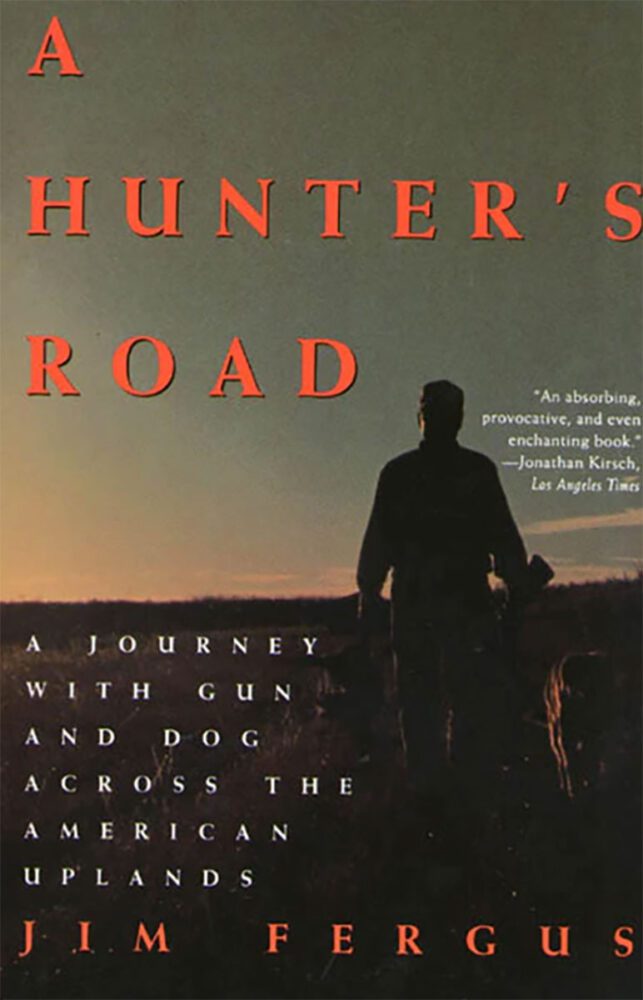 A thoughtful and sometimes troubling exploration of the health and well-being of what remains of the American countryside, A Hunter’s Road is by turns poignant, humorous, lyric, opinionated, and unflinchingly honest. It is destined to become an American sporting classic. Buy Now
A thoughtful and sometimes troubling exploration of the health and well-being of what remains of the American countryside, A Hunter’s Road is by turns poignant, humorous, lyric, opinionated, and unflinchingly honest. It is destined to become an American sporting classic. Buy Now

